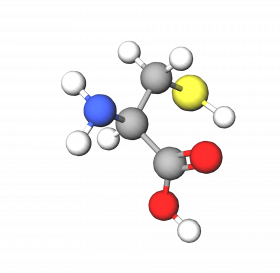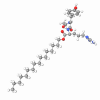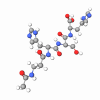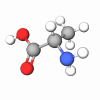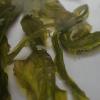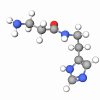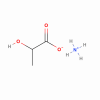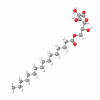Cysteine is a sulfur-containing, proteinogenic, semi-essential amino acid. It is widely used for a wide range of applications, including in the food sector as a dough conditioner and a flavoring agent.
Cysteine is employed in hair care products in the cosmetics sector and pharmaceuticals; it has long been used as the raw material for expectorants, excipients, and bioprocessing. Thanks to its ability to form disulfide bonds, this amino acid plays an essential role in hair keratin, providing extraordinary tensile strength, insolubility in water, and other unique mechanical properties.
Copolymerized with different silicone-containing polymers, Cystine ensures their adhesion to hair, providing an outstanding hair-conditioning effect. It is also employed in advanced peptide-based ingredients and complexes, which repair hair structure and crosslinking damaged parts of keratin. Demand for cysteine is also growing rapidly because of its value as an ingredient in over-the-counter skin-lightening drugs and skin care applications, as it assists in skin metabolism, suppresses melanin production, and improves dermal cell turnover.
Cystine, the raw material for cysteine-based ingredients, is an amino acid found in large amounts in animal and human hair. Traditionally, it has been produced by extraction utilizing a potent acid. However, this method requires large amounts of acid and produces a resultant odor and waste fluid, which has become an issue of environmental concern. After the outbreak of BSE, animal-derived Cystine has been avoided in the US, Europe, and Japan, among other countries.Manufacturers developed methods of producing cysteine with no animal-origin components. One of the most effective methods involves an enzyme reaction with the chemical compound DL-ATC as the starting material. Currently, L-cystine is produced via the enzymatic process, followed by an electrolytic reduction process. The material is then refined and can processed into various derivatives. At the same time, this method also attained Kosher/Halal certification for cysteines utilized in personal care products.
